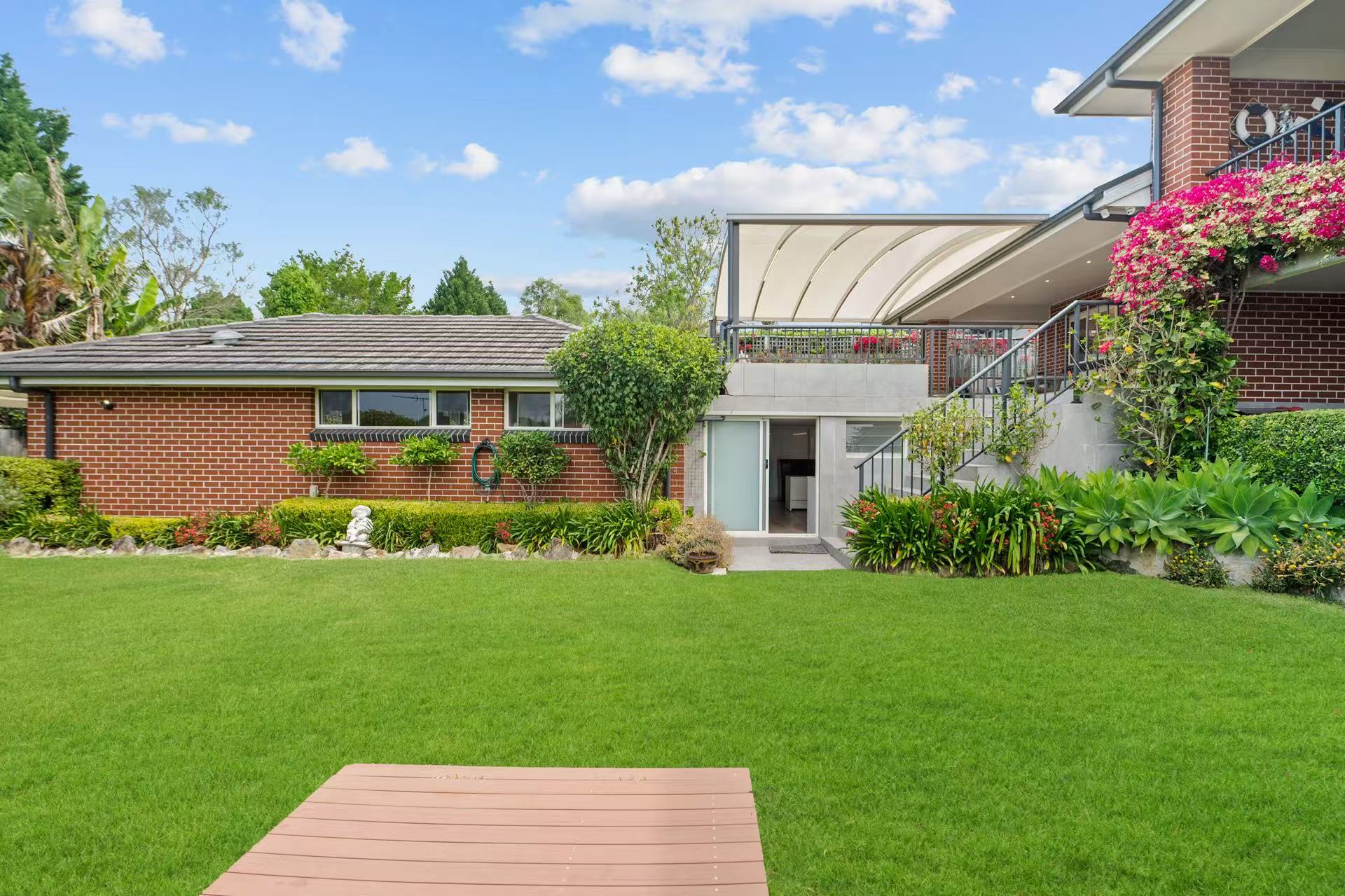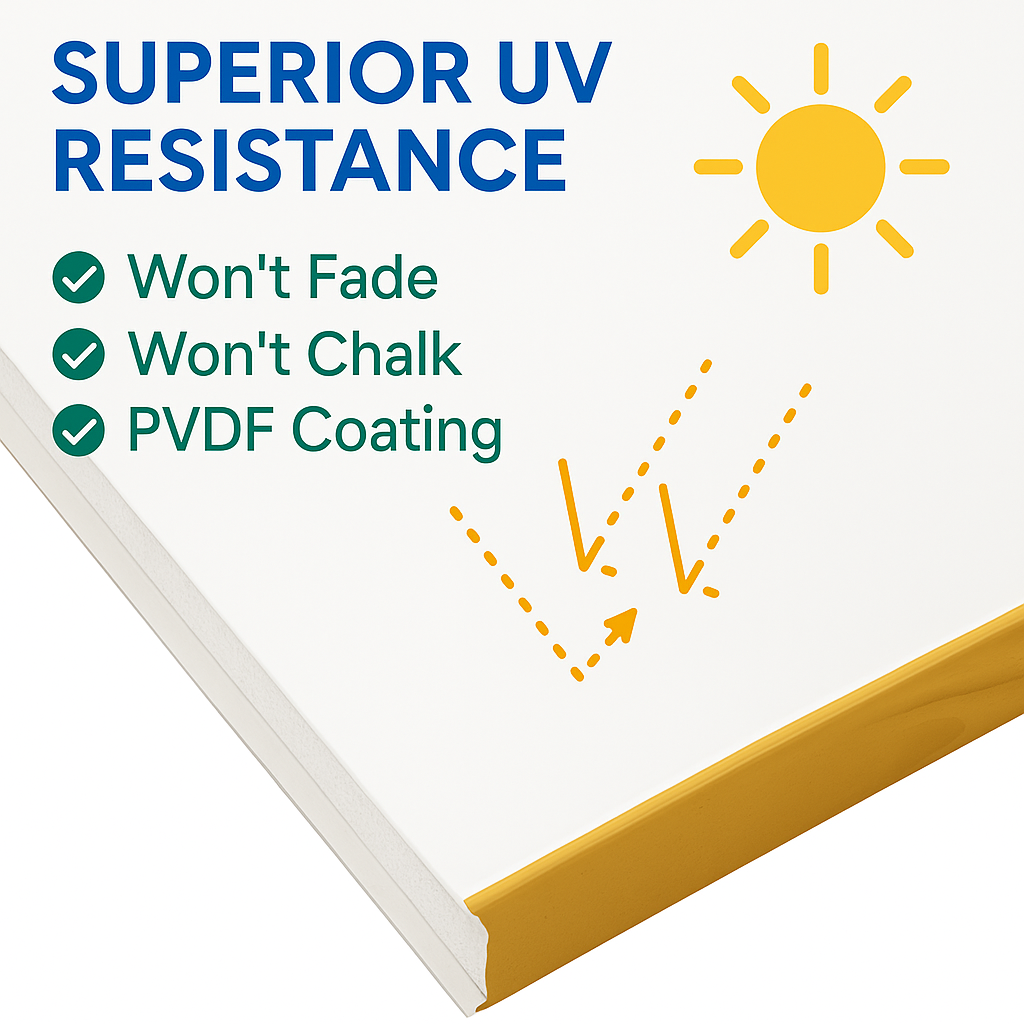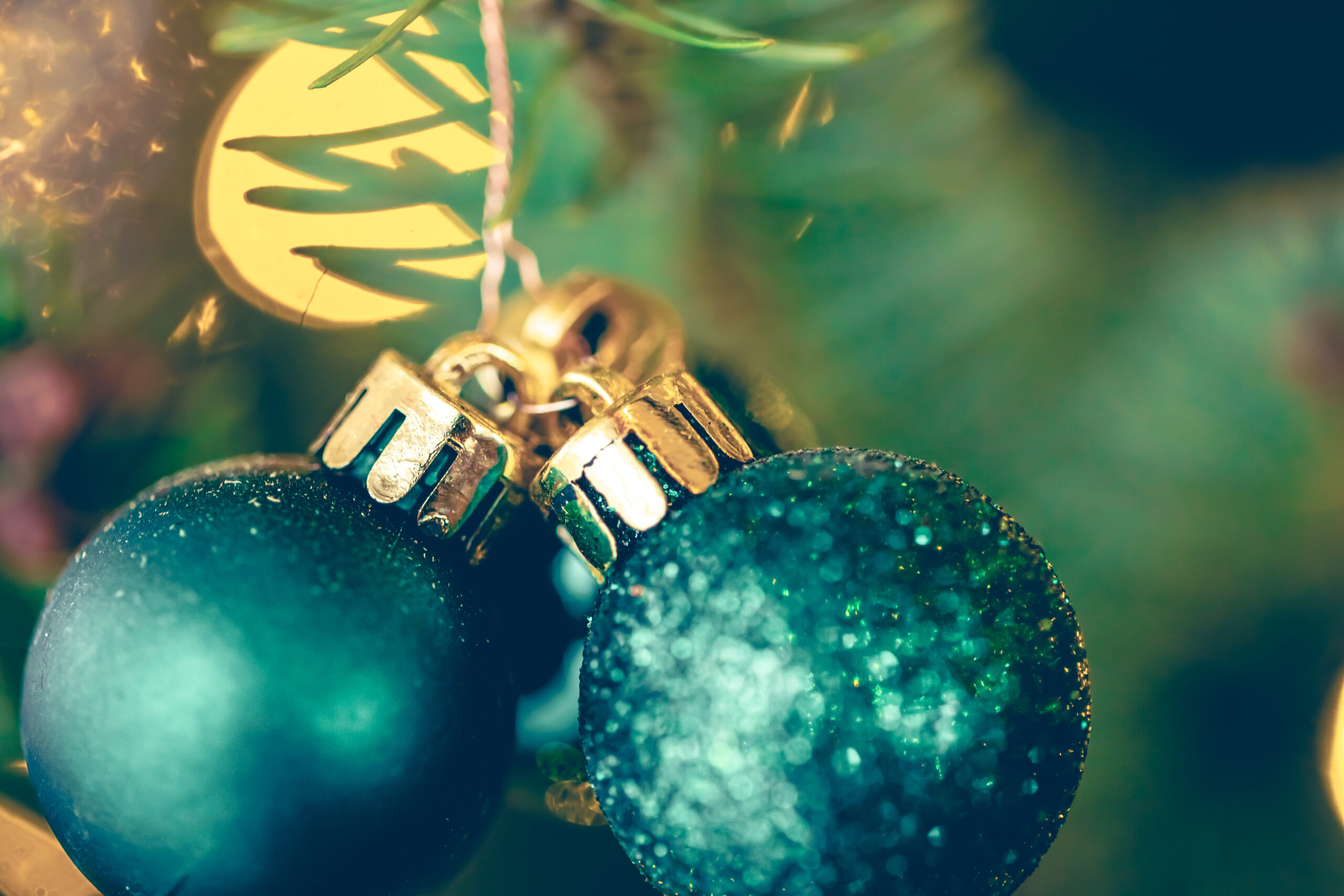
Why We Use PVDF Coating on the Surface of Panels — The Science Behind Architectural-Grade Durability
This is exactly why Bighands insulated panels are finished with premium PVDF (polyvinylidene fluoride) fluoropolymer coating — the same class of coating used on high-end architectural façades and landmark commercial projects worldwide.
PVDF is not just a nicer finish — it is a high-spec protective system that elevates the lifespan, appearance and durability of any metal-faced insulated panel.
Below is a clear explanation of why PVDF performs so well, how it works scientifically, and why it is the ideal coating for both EPS and PIR panel systems.
🌟 What Exactly Is PVDF Coating?
PVDF is a high-purity fluoropolymer coating, often branded under names such as Kynar 500® or Hylar 5000®, known for exceptional resistance to UV, chemicals and weathering.
It belongs to the highest performance coating category used in construction and meets the AAMA 2605 standard — the top benchmark for exterior architectural coatings.
In practice, this means:
- PVDF maintains colour, gloss and film integrity for decades, even under extreme conditions.
🔬 The Science Behind PVDF's Superior Performance

PVDF’s exceptional durability comes from its molecular structure. Here’s how it works:
1. Strong C–F Bond Energy (Core Advantage of Fluoropolymers)
The carbon–fluorine (C–F) bond has one of the highest bond energies in organic chemistry, giving PVDF:
- extraordinary resistance to UV radiation
- chemical inertness
- thermal stability
- resistance to oxidation and hydrolysis
Result: The coating does not break down, chalk or fade easily — even after years of exposure.
2. Semi-Crystalline Structure Improves Film Integrity
PVDF has a high degree of crystallinity, which provides:
- hardness
- abrasion resistance
- stable molecular alignment
- long-term mechanical strength
Result: The coating resists cracking, peeling, and micro-fracturing, even when the metal substrate expands or flexes.
3. Low Surface Energy for Natural Self-Cleaning
PVDF naturally repels water and contaminants, creating:
- hydrophobic surface behaviour
- reduced dirt retention
- rainwater-assisted cleaning
- long-term gloss retention
Result: The panel stays clean and visually appealing with minimal maintenance.
4. Industry-Leading Colour & Gloss Retention
PVDF coatings maintain their appearance with extremely low ΔE colour change over time. A ΔE value below 5 after long-term UV exposure is considered outstanding — and PVDF often performs at or below this level.
Result: Colours remain rich and stable for 10–20+ years, even in harsh Australian sunlight.
5. High Temperature & Chemical Resistance
PVDF coatings resist:
- acids
- alkalis
- solvents
- salt spray
- industrial pollutants
- temperatures up to ~138°C (280°F)
Result: Ideal for coastal, industrial and high-UV environments.
🌤 Why PVDF Is the Ideal Coating for Panel Surfaces
Both EPS (Expanded Polystyrene) and PIR (Polyisocyanurate) insulated panels rely on their metal exterior for long-term durability. When combined with PVDF coating, both systems achieve architectural-grade performance.
✔ PVDF + EPS Panels
EPS panels excel at:
- thermal insulation
- lightweight installation
- moisture resistance
Adding PVDF enhances EPS panels with:
- superior UV protection
- long-lasting colour
- increased corrosion resistance
- self-cleaning exterior
- improved weather durability
Ideal for: pergolas, external wall cladding, patio enclosures, and residential outdoor structures.
✔ PVDF + PIR Panels
PIR panels provide:
- higher fire performance
- better thermal efficiency
- enhanced structural stability
PVDF further strengthens PIR panels by:
- protecting the steel surface during temperature fluctuations
- preventing coating breakdown in harsh UV
- improving corrosion & chemical resistance
- maintaining façade aesthetics for commercial applications
Ideal for: commercial façades, cold storage, industrial buildings and high-performance exterior applications.
🌟 The Result: A Premium Insulated Panel System for Australian Conditions
- Better long-term durability
- Superior weather and UV resistance
- Colour and gloss retention for decades
- Reduced maintenance cost
- Higher resistance to corrosion and pollutants
- A cleaner, more attractive appearance over time
This is why PVDF is considered the gold standard for high-quality metal cladding — and why we use it on our panels.
Why Bighands Chooses PVDF
Our goal is simple: to offer panels that look better, last longer, and perform reliably for years.
Many low-cost panels use polyester or SMP coatings that fade, chalk or deteriorate quickly. PVDF ensures:
- longer lifespan
- architectural-grade performance
- stability under extreme sunlight
- superior outdoor durability
- better value across the entire service life
When you choose Bighands panels with PVDF coating, you are choosing a premium system designed for real Australian environments.









